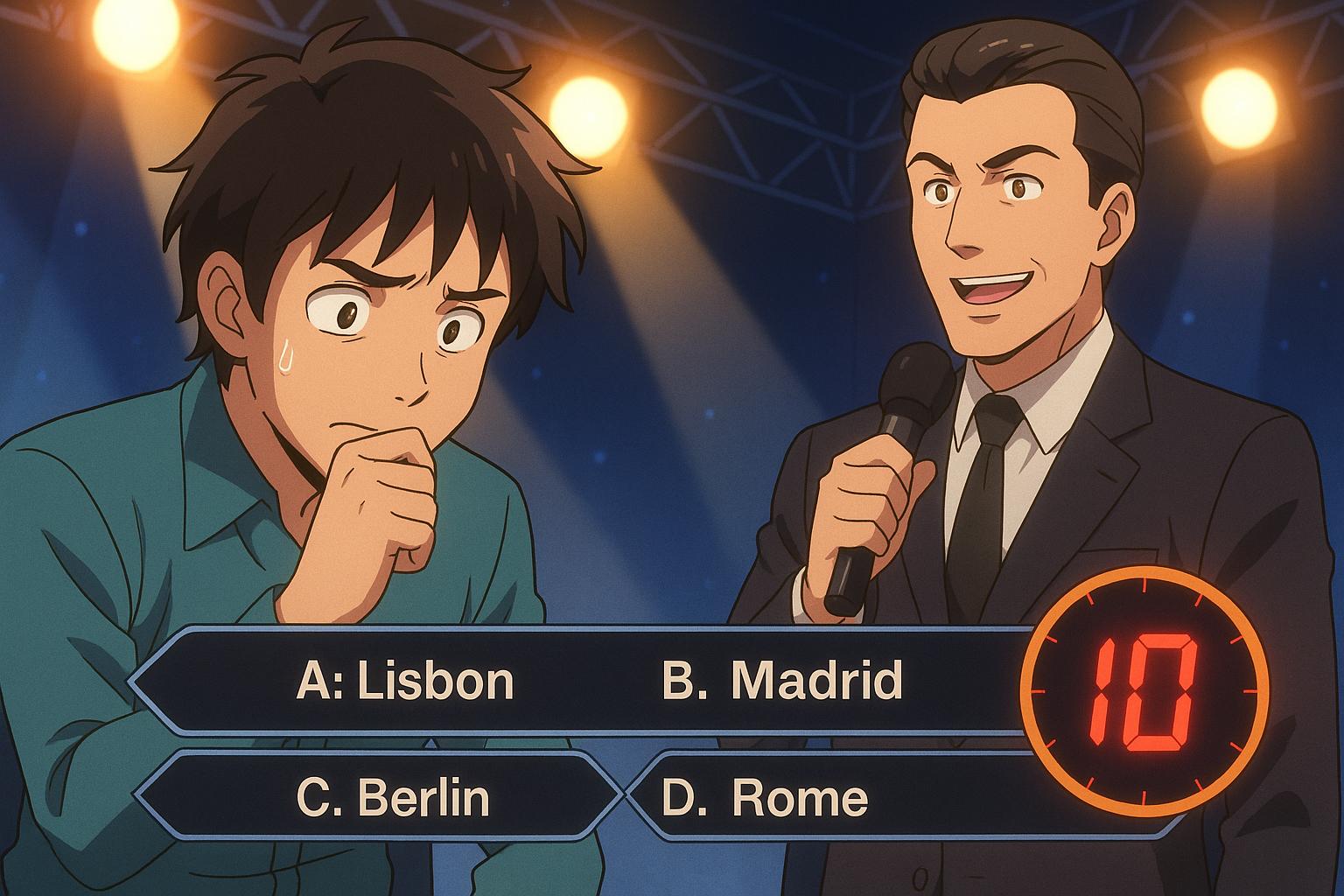In a dramatic turn of events on the iconic game show "Who Wants to Be a Millionaire," contestant Nicholas Bennett found himself facing one of the most significant losses in the show's history. During the recent episode, the data analyst from West Hampstead, London, grappled with the final question after successfully navigating the money tree to secure a £125,000 safety net. Presented by Jeremy Clarkson, the high-stakes moment took a heartbreaking twist when Bennett, despite the aid of two lifelines, answered incorrectly, costing him £375,000.
The £1 million question posed was particularly challenging: “Which of these words, each coined by a famous writer, was derived from the tale of a fairytale about three princes?” Contestants were given four options: A) Pandemonium, B) Serendipity, C) Utopia, and D) Yahoo. Faced with this potentially life-changing question, Bennett hesitated and decided to consult Clarkson, who unfortunately had no insight to offer. Turning to his roommate for the "Phone a Friend" lifeline yielded no clarity either. After considerable deliberation, Bennett chose "Yahoo," an answer that ultimately proved to be incorrect as Clarkson revealed the correct response was "Serendipity," the term coined by Horace Walpole in the 18th century.
Although this misstep marked a significant reduction in Bennett's potential winnings, he maintained a commendable optimism, stating, “Still get £125,000.” Clarkson, visibly affected by the turn of events, remarked, “What a reaction,” expressing that he would have been "sobbing" had the loss befallen him. This incident has reignited discussions about the show's most difficult questions, particularly the final ones, which have historically stumped numerous contestants since its inception in 1998.
The game's format, which encourages contestants to face increasingly challenging questions, has created a landscape where both triumphs and disappointments are memorable. Only seven contestants have successfully won the £1 million jackpot, with losses such as Bennett's being a stark reminder of the high stakes involved. The show, originally hosted by Chris Tarrant, faced cancellation in 2014 but saw a revival in 2018 under Clarkson’s stewardship, attracting a new generation of viewers drawn to its blend of suspense and entertainment.
Notably, other contestants have faced substantial financial fallout as well, often likening the experience to a rollercoaster of emotions. For example, in the American version of the show, contestant Ken Basin lost $475,000 in a similar predicament, illustrating that such harrowing experiences are part and parcel of the "Who Wants to Be a Millionaire?" phenomenon, spanning across cultures and adaptations.
Nicholas Bennett’s experience speaks volumes about the pressure and intricacies of game show dynamics. With heightened anticipation during the finale, contestants must contend not just with the weight of their choices but also the impact of their decisions on their lives. His journey reflects both the exhilarating highs and devastating lows that come with brave forays into the realm of knowledge-based competition, as viewers and potential contestants alike continue to be captivated by the enduring allure of "Who Wants to Be a Millionaire."
##Reference Map:
- Paragraph 1 – [1], [2]
- Paragraph 2 – [1], [2], [3])
- Paragraph 3 – [3]), [4]), [6]
- Paragraph 4 – [3]), [6], [7]
Source: Noah Wire Services
